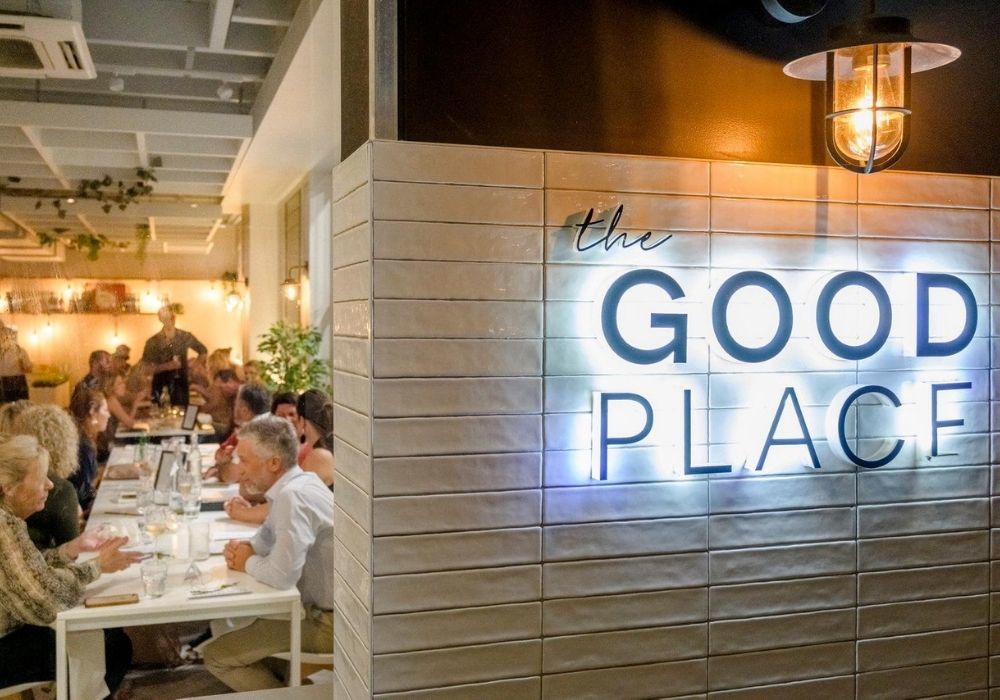With more Australians choosing to eat meat-free at least sometimes, food businesses ignore vegan and vegetarian options at their peril. Cafes, restaurants and fast-casual eateries latching onto plant-based alternatives are not only better positioned to retain existing customers trying different ways of eating, they may attract new customers and, at the same time, feed them more economically with meat-free dishes.
The Good Place is a collection of three Queensland eateries with two more on the way. Co-owner James McGovern describes the venues as ‘health and wholefoods based’ with a predominantly gluten-free and paleo market. “Until a few months ago, we weren’t really focusing on vegan or vegetarian,” he says. “We were more about sustainability in terms of using regenerative farmers to source our meat.”
Many plant-based meat alternatives are highly processed, which didn’t fit in with The Good Place ethos. “I never saw us taking on a vegan meat product because they often use monoculture soy products, which can be genetically modified,” he says.
Recently, he came across a mushroom-based vegan product called Fable which replicates slow-cooked meats. “It ticks the boxes in that it has minimal ingredients and minimal processing,” he says. Customers can choose to swap it out for pulled beef and slow-roasted lamb.
The menu reshuffle has gone extremely well. “We have only had it on our menu for a few months and our vegetarian and vegan dishes now make up one-third of our food sales,” he says.
The vegan option helps the bottom line. “I make a much larger margin on it,” he says. “The meat I source – pasture-raised pork directly from the farmer, for example – is relatively expensive,” he says. “The vegan option is one-third of the price and we still charge the customer the same.”
Overall volume has increased, too. “It’s added to the top-line because it’s brought in new customers,” says McGovern.
He believes customers are looking to vegan alternatives predominantly for ethical reasons, not because they think it’s healthier or will be cheaper.
“There is a lot of media around meat production and the environmental impacts of that,” he says. “I have a more holistic view, personally, where I focus more on the way animals are raised and farmed, but many consumers do believe a plant-based alternative is more ethical and sustainable. We have to cater to that market. If that means putting vegan meat on our menu to service people who are trying to do their best, then that’s what we do. We also get a really positive commercial outcome.”
‘New, fresh and exciting’
Shawn Kerr is the CEO of Burger Urge, a chain based in Queensland, with branches in the Northern Territory, NSW and Victoria. They offer a range of vegetarian patty alternatives.
Kerr also believes customers are primarily driven to choose meat-free because of ethical considerations, and they are happy to spend as much as they would do on an animal product. “You don’t need to position a premium plant-based product as cheaper,” he says. “If you make it too cheap, that’s actually a deterrent. It has to be positioned as new, fresh and exciting.”
Kerr takes a macro view of the plant-based conversation. “We have to look at the profit-and-loss effect of not protecting the environment,” he says. “The conversation around global warming has been a bit on-hold with the pandemic, but it hasn’t gone away. If we don’t support the world we live in, the impact on everyone’s bottom line is going to be huge.”
He sees plant-based options as one part of that puzzle, even though at this point, he makes lower margins on vegetarian burgers than meat ones. “We buy hundreds of tonnes of beef,” he says. “We don’t yet have the economies of scale with plant-based burgers. There is profitability in them, but the price point could be better, and I’m sure will be better over time.”
He’s noticed a big uptick in plant-based burger sales over the past 18 months. “It’s grown from three per cent to the early teens in that period,” he says. “Customers are wanting it because they’re looking for sustainability in every element of their lives. We need a long view on how we support customer trends. The short view is that there are implications in the P&L, but the long view is that if you’re in early enough and on the front foot, you’ll reap the rewards.”
To keep up to date with food industry news and Fine Food Australia updates, subscribe here.

